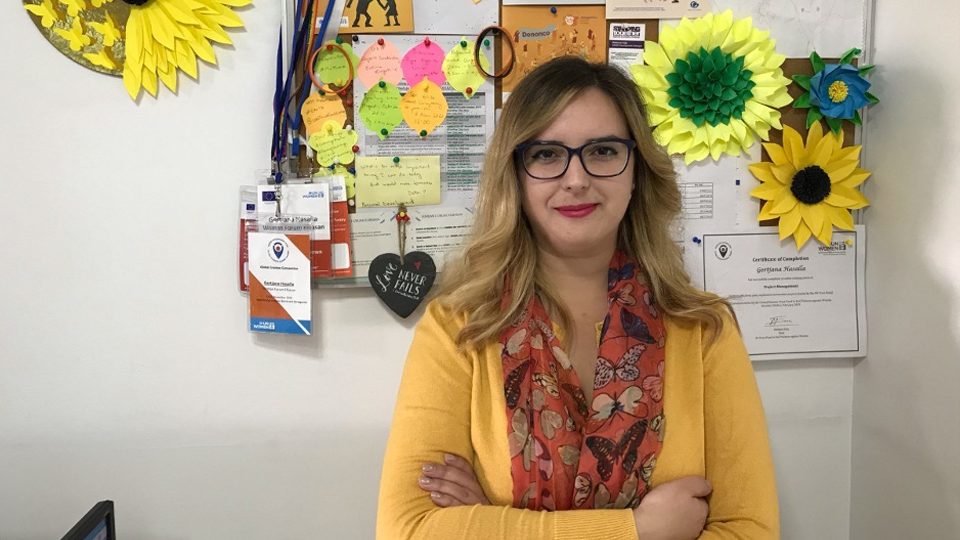We continue to create the right environment for rural women to live a better and safer life
How a local women’s organization supported by UN Women and the EU provided survivors of domestic violence with essential needs and psychological and legal support during the pandemic.Date:
Even before the COVID-19 pandemic hit, 243 million women and girls globally were abused by their intimate partners in the past year. Since the pandemic, with lockdowns measures, countries around the world have seen an alarming rise in reporting on violence against women, especially domestic violence. UN Women is working with women on the front lines who are responding to the shadow pandemic of violence against women and girls every day. “What Happened after COVID-19 hit”, brings you some of their stories, and how our programmes are backing solutions that leave no one behind.


During the pandemic, many women lost their jobs so they couldn’t provide food, basic needs, or particularly rent payments for their children and families. This situation made it difficult for women victims of violence to leave violent relationships.
To support these women, our organization has cooperated with local institutions, companies and community members to provide food and hygiene packages. To this date, we have been able to support 55 women and girls that are victims of violence with our services during the pandemic.
Being isolated in the same house with their perpetrators has been a serious threat for women’s mental health as well. A woman living in the same house with her perpetrator, suffering from anxiety disorders, called in for our psychological support. Even though we were amid the lockdown, the police immediately responded to our request and went to her house to verify the situation. This shows that local institutions have increased sensitivity towards these issues compared to the previous years.
We’ve been working hard to be close to our beneficiaries and to make sure that our services are equally functional, fulfilling and create a positive impact. We didn’t cut off our communication with survivors of domestic violence during the outbreak and we’ve been offering counselling via the telephone. We always shared social, psychological and legal information for survivors of domestic violence, including children, almost daily on our social media networks.
At the same time, we still visit villages, sit down and listen to women to learn more about the difficulties they face.
Every day we continue to work to create the right environment, conditions and possibilities for rural women to live a better and safer life.”
UN Women responds through programmes on the ground
Gertjana Hasalla works with the Woman Forum Elbasan (WFE) in Albania since April 2014. WFE is working in the Elbasan region in central Albania since 1999 on gender equality issues, including empowering women and girls from disadvantaged communities, increasing capacities of local governmental and non-governmental stakeholders and advocating for the protection of women’s rights. The organization is one of the six civil society partners of UN Women’s regional programme on ending violence against women “Implementing Norms, Changing Minds,” funded by the European Union.
Since COVID-19 lockdowns started, the organization registered a 30 per cent increase in the reporting of violence against women cases and the counselling offered by its specialists, including psychologists, social workers and lawyers. Women needed support with domestic violence cases, request for protection orders, divorce processes, mental health, food packages, and problems related to anxiety, panic and depression.
WFE provided telephone and hotline services and psychological support for survivors of domestic violence. They used social media to raise awareness about COVID-19 prevention measures, provided personal protective equipment in WFE facilities for staff and survivors, and kept WFE’s emergency shelter safe and disinfected.
The organization is expanding the reach of its services, including psychological counselling and legal representation, to smaller municipalities of Region Elbasan.